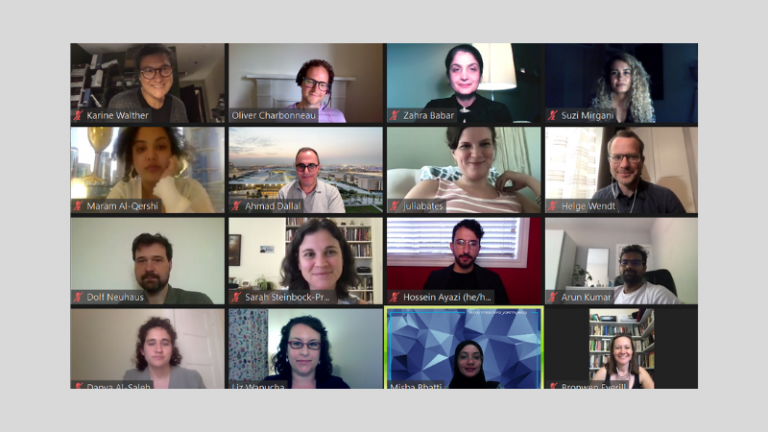American Studies, CIRS Faculty Research Workshops, Race & Society, Regional Studies
The Gospel of Work and Money: Global Histories of Industrial Education Virtual Working Group III

June 8, 2021 @ 5:00 pm – 7:00 pm
On June 8, 2021, the Center for International and Regional Studies convened a third virtual working group under its research initiative on The Gospel of Work and Money: Global Histories of Industrial Education. During this paper workshop two chapter contributions were presented and discussed, which received in-depth feedback from the group.
Dr. Bronwen Everill, presented the first paper titled, ““The Dignity of Labor”: Liberian Industrial Education in West Africa.” The chapter looks at the role of Liberia within West Africa, as a site of educational innovation and the launch of US state-based missionary and educational enterprises. The author explores the close internal relationship between Liberia and Sierra Leonean and the use of education as a way of maintaining Liberian sovereignty. By the end of the 19th century, Liberian engineers were training African workers for plantation labor, domestic housework, and for skilled and unskilled industrial labor in places as far away as German Togo, British Nigeria, and the Belgian Congo. At the start of the 20th century, Liberians had become part of a mobile class of African engineers, missionaries, and educators spreading American values and ideas on the continent. The paper addressed the literature about Liberia and its use of education in their struggle for sovereignty and independence. The author argues that Liberians used whatever means at their disposal to ensure that Liberia was not incorporated into the British or French Empire, by ensuring their effective control over and domination of the indigenous populations of Liberia.
Next Dr. Helge Wendt presented his paper titled, “Industrial-Technological Education in Spanish America during the Second Half of the Nineteenth Century.” The paper provides a comparative study of early industrial education schools in five Latin American countries i.e. Chile, Argentina, Mexico, Cuba, and Colombia. These schools of Arts and Trades were opened in the 19th century with the goal of training young men, and later young women, in practical and technical fields of production. The author states that the history of industrial education in these countries can be divided into different initiatives related to higher education, primary education, professional training, and further training. In this comparative study, Wendt wants to understand the school foundations and subsequent reforms in their local, inter-local, national and international contexts. School regulations, teachers and student recruitments play a special role in the analysis of the different developments. Also, connections of the school with the existing school system and the hopes for stimuli for the economic activity in the respective country will be studied.
The third paper workshop for the project is scheduled for the end of June, in which three scholars will present their draft papers and receive commentary.
- For the meeting agenda, click here.
- For the participants’ biographies, click here.
- For the research initiative, click here.
Participants and Discussants:
- Maram Al-Qershi, CIRS – Georgetown University in Qatar
- Danya Al-Saleh, University of Wisconsin–Madison
- Hossein Ayazi, Williams College
- Zahra Babar, CIRS – Georgetown University in Qatar
- Julia Bates, Sacred Heart University
- Misba Bhatti, CIRS – Georgetown University in Qatar
- Oliver Charbonneau, University of Glasgow
- Bronwen Everill, University of Cambridge
- Arun Kumar, University of Nottingham
- Suzi Mirgani, CIRS – Georgetown University in Qatar
- Dolf-Alexander Neuhaus, Free Berlin University
- Sarah Steinbock-Pratt, University of Alabama
- Karine Walther, Georgetown University in Qatar
- Elizabeth Wanucha, CIRS – Georgetown University in Qatar
- Helge Wendt, Max Planck Institute for the History of Science (MPIWG) Berlin
Article by Misba Bhatti, Research Analyst at CIRS